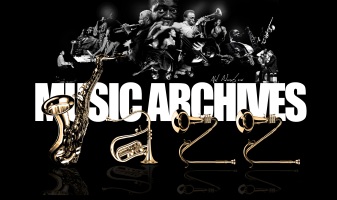
 |
“Jazz From Detroit” by Mark Stryker |
Post Reply 
|
| Author | |
snobb 
Forum Admin Group 

Site Admin Joined: 22 Dec 2010 Location: Vilnius Status: Online Points: 28465 |
 Post Options Post Options
 Thanks(0) Thanks(0)
 Quote Quote  Reply Reply
 Topic: “Jazz From Detroit” by Mark Stryker Topic: “Jazz From Detroit” by Mark StrykerPosted: 10 Dec 2019 at 12:19pm |
 Jazz From Detroit by Mark Stryker (Michigan University Press Hardback, 342 pp. Book Review by Andy Hamilton) Jazz from Detroit explores the city’s role in shaping modern and contemporary jazz. The book consists of a series of critical biographies on the city’s most notable musicians, broken up by astute historical scene-setting and contextual chapters. It features over two dozen profiles of Detroit musicians, featuring material from interviews that Mark Stryker conducted, and many excellent photographs. Stryker has been an arts reporter and critic at the Detroit Free Press for two decades, and his book is thoroughly researched and stylishly written, offering important insights into the geographical basis of American jazz. Stryker begins by citing Detroit jazz pianist Kenn Cox‘s complaint, that listeners know about Motown and the city’s pop legacy, but don’t recognise its importance in jazz. General Motors began in Detroit in 1908; Chevrolet began in 1918, followed by Dodge and Chrysler. As a result of the manufacturing boom across two World Wars, a substantial African-American population migrated from the South. In the 1940s and ’50s, the car industry created a prosperous African-American working and middle class in Detroit, with a vibrant nightlife. Detroit was unusual in having an integrated school system, and musicians’ union, and most significant was the exceptional public school music programmes – notably at Cass Technical High School – enhanced by mentors in the community such as pianist Barry Harris. Their pupils filled symphony orchestras across the US, as well as jazz and pop bands.
This golden age produced some remarkable musicians: Hank, Thad, and Elvin Jones, Gerald Wilson, Milt Jackson, Yusef Lateef, Donald Byrd, Paul Chambers, Charles McPherson, Pepper Adams, Tommy Flanagan, Sheila Jordan, Yusef Lateef, Kenny Burrell, Ron Carter, Joe Henderson, Kenny Garrett, Geri Allen. (Bebop graduates of Cass, as well as Chambers and Carter, included Wardell Gray, Lucky Thompson, Howard McGhee, Al McKibbon, Roland Hanna and Kirk Lightsey – an astonishing roll-call from one regional institution.) As George Grella puts it in a review, the golden age occurred “at the delicate balance point when jazz was a commercially viable and popular art music”. The city’s economic fortunes declined, and there were terrible riots in 1967; growing mismanagement led to the 2013 bankruptcy. But musician-run cooperatives of the 1960s and ’70s, including the Strata Corporation and Tribe, sustained the city’s musical development. Mentors such as trumpeter Marcus Belgrave have ensured that Detroit continues to develop great jazz players, including Belgrave protégés Kenny Garrett, Robert Hurst, Regina Carter, Gerald Cleaver, and Karriem Riggins. Stryker quotes from a 1996 interview with Joe Henderson: “Detroit had the best listening audience…No way to come up on the bandstand jiving”. Stryker sees a slow revival of neighbourhoods in the city as cautious grounds for optimism. The first musician profile is Gerald Wilson, who got his break with Jimmie Lunceford, and was still composing into the 21st century – he died at age 96 in 2014. Yes, he went to Cass Tech, where his fascination with harmony began. Stryker comments that he was underrated for most of his career, partly because he chose to live on the West Coast. But the author doesn’t go in for undiscriminating eulogies, and offers a critical evaluation of Wilson’s later recordings. The chapter on Yusef Lateef perceptively links the saxophonist’s multi-ethnic idiom with the later vogue for World music; Stryker argues that his finest working band was with Kenny Barron and Albert Heath, from 1971-75. Another Detroit elder is Hank Jones, whose touch Stryker rightly describes as aristocratic. His brother Elvin had a more radical influence on the music – Stryker comments interestingly that “the variety of articulation of his cymbal strokes made downbeats less discernible…for musicians whose internal time wasn’t secure”. A particularly evocative chapter is the one on Marcus Belgrave, less known as a player, but a key influence on Detroit musicians across 40 years; the trumpeter reminisces about his time with Ray Charles. It’s followed by a moving chapter on Belgrave’s greatest pupil, Geri Allen, who died at aged 60 in 2017. As the author comments, “Geography has always mattered in jazz”. He makes a strong case that as well as New Orleans, Chicago, New York, Los Angeles and Kansas City, Detroit should be known as one of the great jazz cities. Finally, a declaration of interest – I am also a published author of Michigan University Press, who did an excellent job with my book of conversations with Lee Konitz in 2007. The present volume suggests that the Press’s production standards have been maintained. from https://londonjazznews.com Edited by snobb - 10 Dec 2019 at 12:21pm |
|
 |
|
Post Reply 
|
|
|
Tweet
|
| Forum Jump | Forum Permissions  You cannot post new topics in this forum You cannot reply to topics in this forum You cannot delete your posts in this forum You cannot edit your posts in this forum You cannot create polls in this forum You cannot vote in polls in this forum |